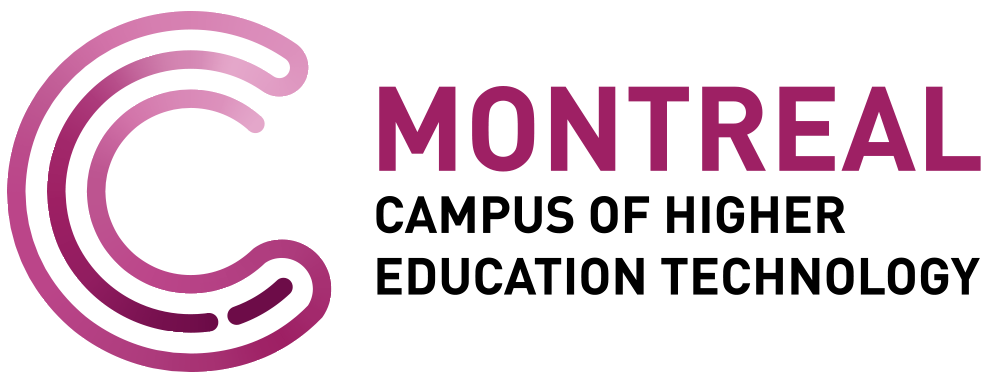Estimation technologies and building evaluation
Ce programme, qui comporte deux voies de sorties, vise à former des diplômés pouvant jouer le rôle d’estimateur en construction ou celui de spécialiste en évaluation immobilière. Certains cégeps offrent la possibilité d’effectuer un double cheminement qui confère les deux spécialisations au terme des études.

Founded in 1968, Cégep André-Laurendeau includes 13 pre-university programs, 13 vocational programs, 12 sports teams, and many continuing education and business service programs. It also includes two college centres for the transfer of technology (CCTT): the Institut d’Innovation en Logistique du Québec (IILQ, Quebec Logistics Innovation Institute) and Optech. Since 1991, Cégep André-Laurendeau has been part of the International Baccalaureate (IB) network, recognized in over 150 countries.
Cégep André-Laurendeau
1111 Rue Lapierre, LaSalle, QC H8N 2J4, Canada
You are ready to apply?
Have you read all the information about your program, about the CEGEP and the requirements? You are ready to register?
Once you receive your letter of acceptance
In order to be able to enter the Canadian territory, you must take several other steps. Follow these steps :
You still have questions?
Coûts approximatifs par année
- France (entente France-Québec) : environ 365 $
- Autres pays : 13 592 $
Conditions d’admission générales
- 11 années d’études validées dans un cursus général (ou dans un cursus technique dont la filière est apparentée à ce programme de DEC)
- Sciences de la 10e année d’études
- Test de français réussi
Durée de la formation
3 ans ou 6 trimestres (temps plein)
Dates limites d’inscription
Automne : 14 mars
- Établir le coût de travaux de construction, des phases de développement et des phases d’exécution d’un projet
- Préparer des devis préliminaires, des devis définitifs ainsi que des devis de soumissions
- Analyser l’information technique et interpréter les plans et les devis selon l’avancement d’un projet
- Choisir et appliquer une méthode d’estimation
- Prendre en considération la législation applicable au projet
- Analyser des dossiers d’appels d’offres
- Planifier les travaux d’un chantier de construction
- Maîtriser l’utilisation des logiciels spécialisés
- Visiter et calculer la valeur d’un immeuble, du terrain et de la bâtisse, pour les domaines résidentiel, commercial, industriel et institutionnel
- Analyser les incidences des lois et règlements sur la valeur d’un immeuble
- Mesurer la qualité des matériaux de construction
- Savoir établir l’âge d’un bâtiment et porter un jugement sur les formes de désuétude pouvant affecter la valeur des immeubles
- Participer à l’établissement de la valeur d’un immeuble en appliquant des méthodes d’évaluation
- Interpréter les plans et les devis existants
- Maîtriser l’utilisation des logiciels spécialisés
- Analyste immobilier
- Estimateur, technicien en évaluation et en inspection
- Gestionnaire de projets
- Représentant commercial
- Technicien en estimation foncière
Obtaining a Quebec Acceptance Certificate
It is the first document to obtain when starting your immigration process. By clicking on the button below you will be redirected to a website describing all the relevant information about it.
Obtaining a Study Permit
There is a second immigration document that you will need to obtain. After receiving your CAQ, you must apply for a Student Permit, which you can do online. This application will be forwarded to a visa office that processes all applications from your country of citizenship or the country into which you have been lawfully admitted. If you click on the button below, you will be redirected to the website where you will find all the details. By clicking on the button below you will be redirected to a website describing all the relevant information about it.
Obtaining health and hospitalization insurance
All international students must hold a valid Canadian health and hospitalization insurance plan for themselves and their accompanying dependents, or they must be covered under a valid reciprocal social security agreement. Citizens of the countries listed below benefit from a reciprocal social security agreement made with Quebec and, as such, may be covered by the Quebec health insurance board (Régie de l’assurance maladie du Québec – RAMQ) in the same way as Canadians or permanent residents of Canada. The countries are: Belgium, Denmark, Finland, France, Greece, Luxembourg, Norway, Portugal, Romania and Sweden. For more information, please consult the reciprocal agreement. All other international students must hold a health and hospitalization insurance plan. The college you will be attending will provide you with information on how to obtain this insurance and the related fees.
Confirming your acceptance and paying the tuition fees
Your letter of acceptance will explain how to complete this final step.
Discover Montreal
No.1 City in America for
International Students
Recognized for its quality of education, Canada has a well-established reputation as a tolerant, non-discriminatory and safe country. Montreal, predominantly French but multilingual, is Canada’s second largest city and ranked the best city in North America for international students.

Demande d'information



